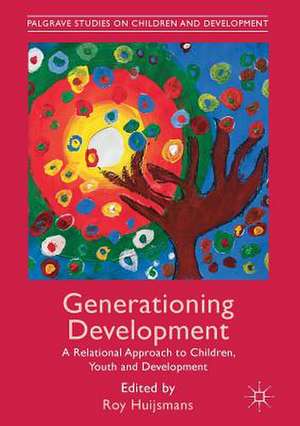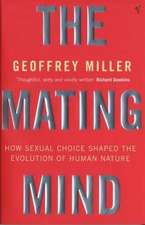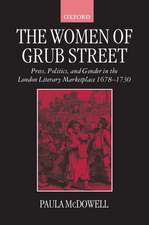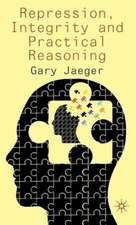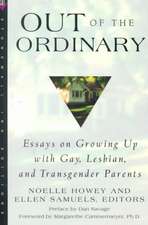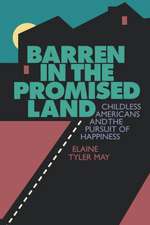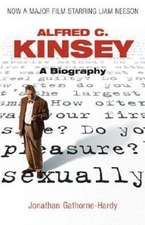Generationing Development: A Relational Approach to Children, Youth and Development: Palgrave Studies on Children and Development
Editat de Roy Huijsmansen Limba Engleză Paperback – 19 noi 2018
Running through these chapters is a fundamental concern with age, gender and generation as key principles of social differentiation. This is developed in Part 1 at a theoretical level, and applied to everyday contexts, including school, work, migration and the street in Part 2. Part 3 zooms in on the generational dynamics of development by exploring how prominent development interventions (conditional cash transfers, schooling) problems (gender discrimination) and questions (the generational question of farming) shape the (gendered) experience of being young and growing up.
| Toate formatele și edițiile | Preț | Express |
|---|---|---|
| Paperback (1) | 161.64 lei 3-5 săpt. | |
| Palgrave Macmillan UK – 19 noi 2018 | 161.64 lei 3-5 săpt. | |
| Hardback (1) | 542.14 lei 3-5 săpt. | |
| Palgrave Macmillan UK – 4 ian 2017 | 542.14 lei 3-5 săpt. |
Preț: 161.64 lei
Nou
Puncte Express: 242
Preț estimativ în valută:
30.93€ • 32.29$ • 25.60£
30.93€ • 32.29$ • 25.60£
Carte disponibilă
Livrare economică 14-28 martie
Preluare comenzi: 021 569.72.76
Specificații
ISBN-13: 9781349717552
ISBN-10: 134971755X
Pagini: 335
Ilustrații: XIX, 335 p. 9 illus.
Dimensiuni: 148 x 210 mm
Greutate: 0.43 kg
Ediția:1st ed. 2016
Editura: Palgrave Macmillan UK
Colecția Palgrave Macmillan
Seria Palgrave Studies on Children and Development
Locul publicării:London, United Kingdom
ISBN-10: 134971755X
Pagini: 335
Ilustrații: XIX, 335 p. 9 illus.
Dimensiuni: 148 x 210 mm
Greutate: 0.43 kg
Ediția:1st ed. 2016
Editura: Palgrave Macmillan UK
Colecția Palgrave Macmillan
Seria Palgrave Studies on Children and Development
Locul publicării:London, United Kingdom
Cuprins
Chapter 1. 'Generationing' Development: An introduction; Roy Huijsmans.- PART I: Theorising Age and Generation in Young Lives.- Chapter 2. Locating Young Refugees Historically: Attending to age position in humanitarianism; Jason Hart.- Chapter 3. Bodies, Brains and Age: Unpacking the age question in the Dutch sex work debate; Sara Vida Coumans.- Chapter 4. The Impact of ‘Age-Class’ on Becoming a Young Farmer in an Industrialised Agricultural Sector: Insights from Nova Scotia, Canada; Elyse N. Mills.- Chapter 5. Mainstreaming Social Age in the Sustainable Development Goals (SDGs): Progress, pitfalls and prospects; Christina Clark-Kazak.- PART II: Everyday Relationalities: School, work and belonging.- Chapter 6 'Generationing' School Bullying: Age-based power relations, the hidden curriculum and bullying in northern Vietnamese schools; Paul Horton.- Chapter 7. ‘Being Small is Good’: A relational understanding of dignity and vulnerability among young male shoe-shiners and lottery vendors on the streets of Addis Ababa, Ethiopia; Degwale G. Belay.- 8. ‘We Don’t Even Use Our Older Children’: Young children accompanying blind adult beggars in Tamale, Ghana; Wedadu Sayibu.- Chapter 9.Travelling Identities: Gendered experiences while doing research with young allochtoon Dutch Muslims; Mahardhika Sjamsoeoed Sadjad.- Part III: Negotiating Development.- Chapter 10.Subjects of Development: Teachers, parents and youth negotiating education in rural North India.- Karuna Morarji.- Chapter 11.Little People, Big Words: ‘Generationing’ conditional cash transfers in urban Ecuador; María Gabriela Palacio.- Chapter 12. Growing Up Unwanted: Girls’ experiences of gender discrimination and violence in Tamil Nadu, India; Sharada Srinivasan.- Chapter 13. Youth, Farming and Precarity in Rural Burundi; Lidewyde H. Berckmoes and Ben White.- Chapter 14. Commentary: Age and Generation in the Service of Development?; Nicola Ansell.
Recenzii
“This volume is a timely addition for academics and practitioners working in policy, youth and development fields. … The volume provides timely insights for why children and youth perspectives need to be integrated within current development research and approaches.” (Jessica Clendenning, Children's Geographies, Vol. 17 (6), 2019)
Notă biografică
Roy Huijsmans is Senior Lecturer in Children & Youth Studies at the International Institute of Social Studies (ISS) in the Hague, the Netherlands (part of Erasmus University Rotterdam). He has written on childhood, youth and migration, the generational dynamics of multi-local householding, and on nationalism, youth and mobile telephony.
Textul de pe ultima copertă
This ground-breaking book weaves together insights from the children and youth studies literature and critical development studies. Debunking the idea of childhood and youth as self-evident social categories, the author unravels how these generational constructs are (re)constituted and experienced in relational terms in development contexts spanning both the Global South and the Global North.
Running through these chapters is a fundamental concern with age, gender and generation as key principles of social differentiation. This is developed in Part 1 at a theoretical level, and applied to everyday contexts, including school, work, migration and the street in Part 2. Part 3 zooms in on the generational dynamics of development by exploring how prominent development interventions (conditional cash transfers, schooling) problems (gender discrimination) and questions (the generational question of farming) shape the (gendered) experience of being young and growing up.
Running through these chapters is a fundamental concern with age, gender and generation as key principles of social differentiation. This is developed in Part 1 at a theoretical level, and applied to everyday contexts, including school, work, migration and the street in Part 2. Part 3 zooms in on the generational dynamics of development by exploring how prominent development interventions (conditional cash transfers, schooling) problems (gender discrimination) and questions (the generational question of farming) shape the (gendered) experience of being young and growing up.
Caracteristici
Integrates Childhood Studies and Development Studies, providing a novel addition to both fields Helps to drive forward debates around age and generation in relation to development studies Combines a wide range of topics covered by both established and newer researchers in the field
